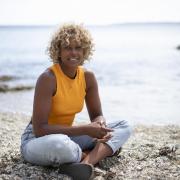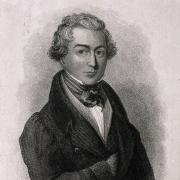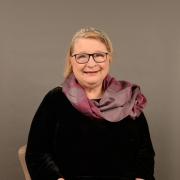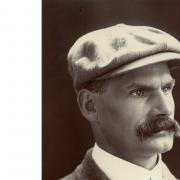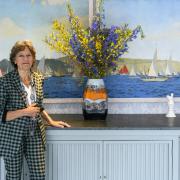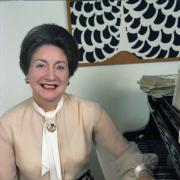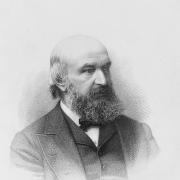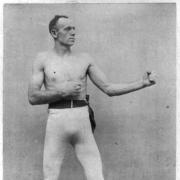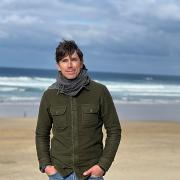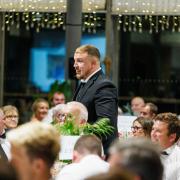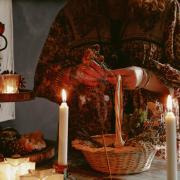Former RAF wing commander Jeremy Dickinson, tells Ian Wilkinson about his longstanding role as Chairman of the Red Cross Volunteers Council for Cornwall, since his retirement
From the RAF to the Red Cross
Former RAF wing commander Jeremy Dickinson, tells Ian Wilkinson about his longstanding role as Chairman of the Red Cross Volunteers Council for Cornwall, since his retirement
In 1859, Henry Dunant, a young Swiss businessman witnessed at first hand the appalling carnage of the Battle of Solferino and, in its aftermath, the untold suffering of the wounded of both sides who received little if any medical care or attention. From this apocryphal scene were sown the seeds of a magnificent humanitarian idea. Henry Dunant’s vision led directly to the signing of the first Geneva Convention, the founding of the Red Cross and the adoption of its emblem as an internationally recognised symbol of protection.
The British Red Cross Society traces its origins back to the Franco-Prussian War of 1870, when one Colonel Robert Loyd Lindsay and his associates formed the British National Society for the Aid to the Sick and Wounded in War, the object of which was to send help to the casualties of both sides. This society, established under the aegis of The Geneva Convention of 1864, became known as the British Red Cross Society in 1905.
By the outbreak of the First World War the Society had recruited over 57,000 volunteer members to its Voluntary Aid Detachments. These men and women supplemented the country’s medical services and thousands worked as nurses in hospitals in Belgium and France and in this country, while others became drivers, cooks, typists and telephonists or undertook other supporting roles.
The work of the Red Cross in emergency response continues to this day and the organisation has played an important role in just about every major conflict and natural or man-made disaster of the last 100 years.From its very beginnings the Red Cross has been organised at a county level and to find out more about its current activities I went to visit Jeremy Dickinson, who is Chairman of the Red Cross Volunteers Council for Cornwall.
Jeremy Dickinson was born in Chester in 1934, the son of a regular soldier, and was educated at Charterhouse. He joined the Royal Air Force at the age of 16 and started pilot training almost immediately. “It was just at the outbreak of the Korean War,” he tells me. “They needed pilots rather urgently so my flying training took just nine months – nowadays it takes over three years!”
It was the start of a distinguished career in the RAF that spanned 35 years and included operations in Korea and Malaya, a spell as an instructor, and a test pilot. His final operational posting was with the Queen’s Flight. “I became the Duke of Edinburgh’s fixed-wing aircraft commander for a number of years,” he tells me. “Prince Phillip was excellent to work for – very straightforward. He’d tell you what he wanted and then left you to plan it and execute it. Occasionally he’d ask why on earth we did such a thing in a particular way and I’d tell him it was for this or that reason and he’d say: ‘Oh, OK that’s fine – I hadn’t thought of that – carry on!’”
Jeremy remembers a particularly amusing incident concerning the Duke and Prince Bernhard of the Netherlands. “We had to fly from Belgium to Rome for a meeting of the F�d�ration �questre Internationale, of which Prince Phillip was president. Prince Bernhard was accompanying him but he had his own aircraft, and at the last minute the two princes decided it would be fun to swap aircraft. So, to my surprise, I ended up flying Prince Bernhard. Now the protocol was that, as president, Prince Phillip should be first on the ground for the official welcome, so while in the air we established radio contact with the Dutch aircraft and suggested that they should land first. They wouldn’t have it, so my aircraft landed, taxied to a halt next to the red carpet and Prince Bernhard emerged to the Italian band playing God Save the Queen! Prince Phillip was subsequently greeted with the Dutch national anthem. The British Ambassador was unimpressed and the protocol people were ashen faced but the two princes walked up the red carpet together laughing and waving to the assembled crowd!”
Jeremy finally left the RAF with the rank of wing commander in 1985. He moved to Trevone, near Padstow in 1970, and on his retirement he immediately joined the RAF Regiment on a part-time basis and commanded the County of Cornwall Royal Auxiliary Air Force Squadron Field Regiment for a period of 11 years. “Finally I just got too old and decrepit and had to retire!”
Thus began Jeremy’s long involvement with the Red Cross in Cornwall, first as Secretary in 2004 and then as Chairman in the following year. “My responsibility is to represent the volunteers in Cornwall – I listen to their ideas and occasionally their complaints and I look after their interests at various regional and national meetings of the British Red Cross. Today, for instance, I’m inducting nine new volunteer members, which means assessing how best they can fit into the organisation.”
The Red Cross in Cornwall has four primary functions. The first, providing first aid facilities at major public events is probably the best known of their activities. The second is a program of Care in the Home, which helps people who have just come out of hospital find their feet again. Jeremy explains: “People are discharged from hospital very quickly nowadays and our volunteers try to make sure that they settle back into their homes as comfortably as possible. For instance, we’ll often drive them from the hospital, make sure that their heating and hot water is turned on and that they have enough food. We’ll pop in twice or three times a day to make sure they’re OK and until we feel that they have passed that vulnerable stage.”
The third function is to provide emergency response in the face of natural or man-made disasters by helping individuals and communities respond to and recover from emergencies such as floods, fires and evacuations. “Thankfully there hasn’t been a great deal to do in Cornwall recently,” says Jeremy, “but you can see the sort of work we’ve been doing in the recent floods in other parts of the country.” The fourth function, and well known to countless first-aiders in the workplace, is to offer first aid training to companies and individuals.
I wonder if Jeremy finds time for anything else. “I enjoy my family and spend as much time with them as possible,” he says. “And I enjoy target rifle shooting and I’m involved in a couple of organisations such as my local ATC Squadron and the Council for Cadet Rifle Shooting. However, the Red Cross takes up a good deal of my time so it’s not always easy to pursue other activities.”
As a nation we have a proud history of voluntary service that supports the community in ways that governmental organisations could not. That it functions at all is still a source of wonderment to outside observers but talking to people like Jeremy Dickinson leaves you in no doubt as to why it works so well.
For further information contact the Cornwall branch of the Red Cross at Lighterage Hill, Newham, TR1 2XR. 0845 3315000, www.redcross.org.uk



